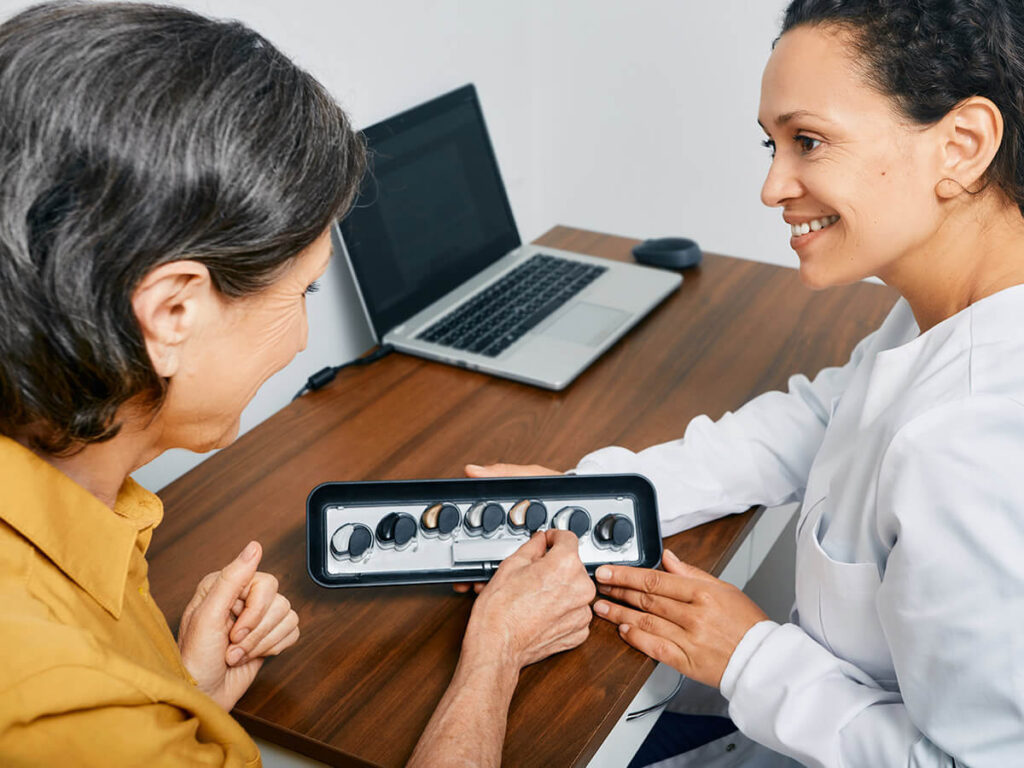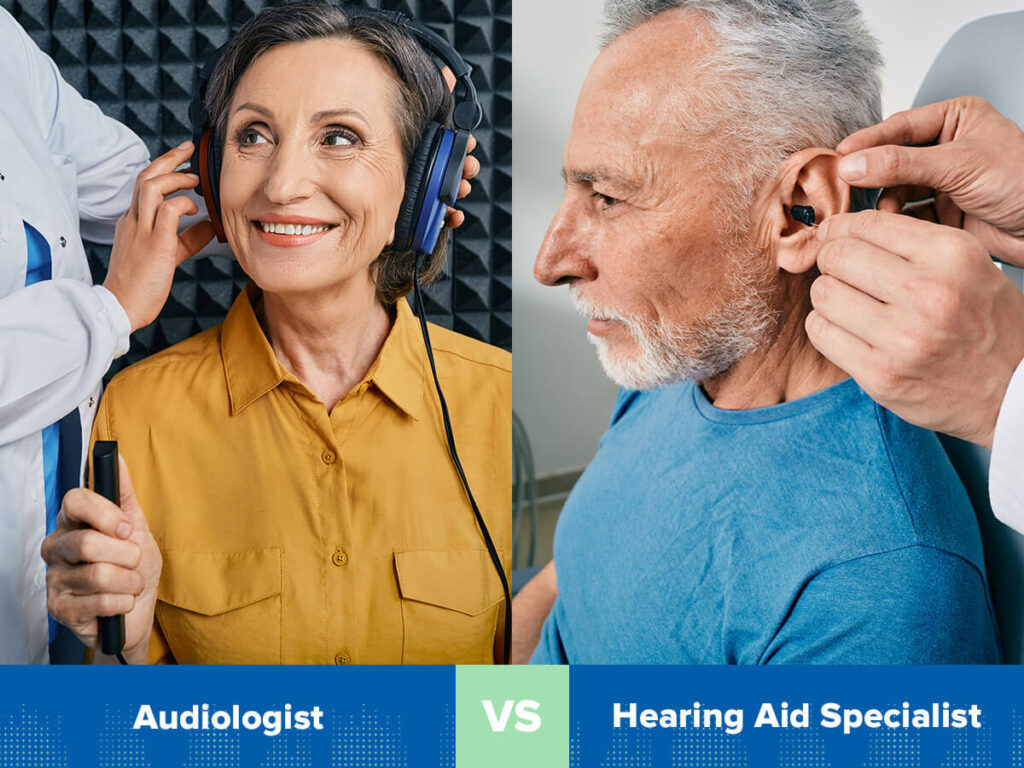Hearing Aid Specialist License Information: How to Get Started

Are you a compassionate person looking for a career? If you have a high school diploma, then you are eligible to help those with hearing loss.
Becoming a hearing aid specialist only takes about 6 – 12 months in most states, and the career is exceptionally rewarding. Keep reading to find out if you are a good candidate to work with those suffering from hearing loss and require hearing aids, as well as some of the most important things that you need to know before getting started.
Here are some questions we will help answer:
- Are you a good candidate to become a hearing aid specialist?
- What is the difference between an audiologist and a hearing aid specialist?
- What are the special considerations for getting a hearing aid specialist’s license in another state?
Who is a Good Candidate to Become a Licensed Hearing Aid Dispenser?
Are you a good candidate to become a licensed hearing aid dispenser? Find out from the list of required skills below.
- Effective written and practical communicator
- Advanced problem-solving skills
- Ready to closely follow rules and regulations
- Eager and adaptable learner
- Excellent planning
- Ability to manage yourself and others
- Able to concentrate for long periods of time
- Prefer working with others
- Identify patterns to address issues
If this sounds like you, then you may be an excellent candidate to become a licensed hearing aid dispenser.


What is the Difference Between an Audiologist and a Hearing Aid Specialist?
While hearing aid specialists and audiologists both help treat hearing loss, the two professions deal with different aspects of the industry. Hearing aid specialists are primarily trained to treat hearing loss through the use of amplification.
Hearing aid specialists will interact primarily with clients who have lost their hearing due to age or other common conditions.
An audiologist on the other hand has an expanded number of tests and assessments they complete to accurately diagnose and treat hearing loss. They also have more avenues for treatment other than hearing aids. Though these two professions serve different—yet overlapping areas of treatment—they are both essential to help those in need regain their hearing capabilities.
Hearing Instrumental Specialist Licenses: State to State
Our Hearing Instrument Specialist program prepares students to take and pass their State Licensure Exams. However, the requirements in each state vary extensively, so it is important to be fully aware of the requirements for your state before beginning any licensure program. Many states require a sponsor or some form of an apprenticeship before you are eligible to take the state exam. Some states require certification by the National Board for Certification in Hearing Instrument Sciences to become fully licensed
Please visit the Department of State website to determine the Hearing Instrument Specialist licensure requirements for the state where you will be employed.
Just like with getting your license, each state has different requirements for how to renew your license as well. Once again, it is recommended you make yourself aware of the requirements from your state before you attempt to renew your license.
For more hearing aid specialist license information you can learn more about our program!
Request more information
Our team is happy to answer any questions you may have. Fill out the form and we will be in touch as soon as possible.

